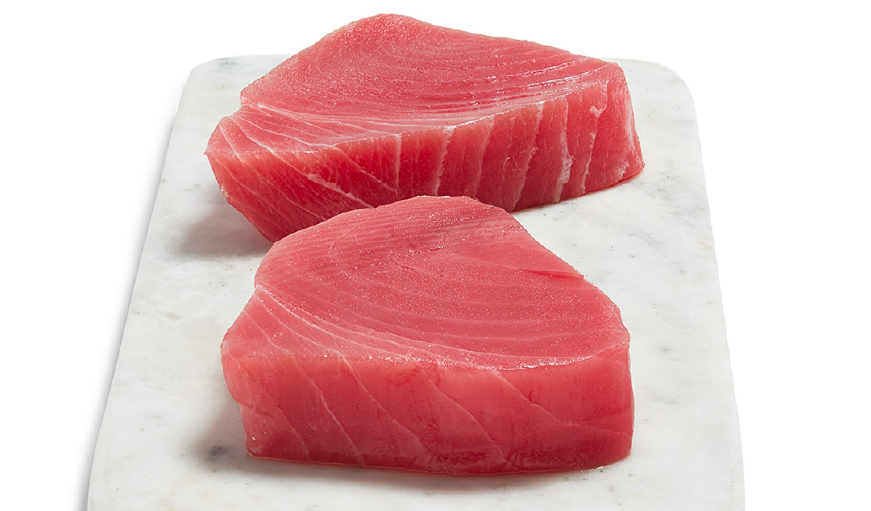Comparing Nutritional Differences Between Freshwater Fish and Marine Fish
MEKSEA.COM – Freshwater fish and marine fish are both nutrient-rich sources of food commonly used in culinary dishes. However, they differ in terms of their nutritional composition and the health benefits they offer. Below is a nutritional comparison of freshwater and marine fish for your reference.
Quick view
Overview of Freshwater and Marine Fish
Overview of Marine Fish
Marine fish include species such as tuna, mackerel, and salmon, and so on which are predominantly classified as red meat and are generally larger in size. They are rich in iodine, zinc, and iron. The meat of marine fish enhances blood production and provides essential nutrients. Additionally, marine fish are a natural source of iodine, surpassing the synthetic iodine from iodized salt, which aids in brain development in young children and prevents thyroid-related illnesses.

Overview of Freshwater Fish
Freshwater fish, also known as freshwater or whitefish, predominantly belong to the category of white meat and include species such as pangasius, catfish, tilapia, and so on. While freshwater fish contain lower levels of iron and iodine, they are rich in essential amino acids. These amino acids are vital for brain development and promote a robust immune system.
So, which type of fish, freshwater or marine, should you consume? Let’s delve into the detailed nutritional comparison below.
Nutritional Comparison of Freshwater and Marine Fish
Caloric Content
In terms of energy provision, marine fish generally have a higher caloric content compared to freshwater fish. However, when considering fat content and the absence of cholesterol, both types of fish are roughly equivalent.
For example, fish like catfish and tilapia, which are freshwater fish, can provide the highest energy content, ranging from 1,245 to 1,700 calories per kilogram. On the other hand, marine fish like tuna, salmon, and mackerel can provide energy content ranging from 1,500 to 23,000 calories per kilogram.

Amino Acid Content
Marine fish are often considered to have a superior amino acid profile compared to freshwater fish. Specifically:
Freshwater fish have a total amino acid content ranging from 6.12% to 19.52%, with catfish having the highest and carp having the lowest amino acid content.
Marine fish encompass all 17 essential amino acids, with amino acid content ranging from 13% to 21%. Tuna and salmon are particularly rich in amino acids, while white croaker has the lowest content.
Vitamin and Mineral Content
Both marine and freshwater fish are rich in vitamins A, D, and various B-group vitamins. However, fish typically contain about 1-1.7% minerals, with marine fish containing more minerals such as iodine, zinc, fluoride, and chlorine compared to freshwater fish.
Health Benefits for Specific Conditions
Freshwater fish are often used in traditional medicine, while marine fish are extensively researched in modern medicine. Some applications of both types of fish in medicine include:
Freshwater fish like carp, catfish, eel, and loach are used in traditional medicine to treat conditions such as night sweats, excessive phlegm, gas accumulation, increased milk production, and fatigue.
Marine fish, rich in omega-3 and DHA, support cardiovascular health, prevent blood clots, and reduce arterial plaque buildup, benefitting heart disease patients.
Potential Health Risks
Each type of fish carries its own set of benefits and risks, depending on individual preferences. However, both freshwater and marine fish are susceptible to spoilage, which can lead to harmful bacterial contamination.
Freshwater fish may carry parasitic worms but are less likely to cause allergic reactions. In contrast, marine fish can be allergenic to some individuals. Some species of marine fish may also contain mercury, which can be harmful to the developing brains of young children.
Generally, marine fish may have a higher risk of toxicity compared to freshwater fish. A study by the Nha Trang Oceanography Institute in Vietnam identified 22 marine fish species with the potential to cause harm to humans.
Taste Sensation
Marine fish typically have a milder and less fishy odor and taste compared to freshwater fish. This is because marine fish inhabit larger environments and are more active, resulting in better muscle flexibility and a more pleasant flavor.
However, not all marine fish are universally superior. People with allergies or histamine intolerance should avoid certain marine fish like tuna and mackerel due to their high protein and histidine content, which can lead to histamine buildup and food poisoning.
In summary, the nutritional comparison of freshwater and marine fish provides valuable insights into their respective advantages and disadvantages. Your choice of fish should depend on your individual needs, preferences, and health considerations.
Meksea sends you the list of our best-selling products this week
| → Pangasius fillet light yellow | → Pangasius steak |
Kindly please visit Meksea website to explore our pangasius products: https://mekseaconnection.com/product-category/pangasius/
Meksea always pays particular attention to product quality to secure each consumer’s family member’s health and set their mind at rest by bringing in true quality seafood products.
Are you looking for shrimp products for your sales plan for 2023? Contact Meksea right now for the best offers.
By Hayati (Meksea Team)
(hayati@mekseaconnection.com)
(Reference: Tepbac)
If you found this topic interesting, please click the Like button below, so we may continue to expand this topic. Leave a comment with your thoughts for the author team to discuss

